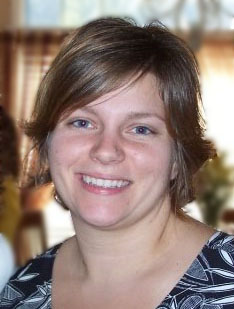Three months into the COVID-19 pandemic, businesses, organizations and individuals have sought to bridge the gaps in daily life with technology.
But for the staff at the Early Head Start program in the Center for Prevention and Early Intervention Policy at Florida State University, technology isn’t a cure–all. Instead it’s laid bare the digital divide that exists amongst the state’s most needy.

Early Head Start provides broad-based care and support to pregnant moms, infants and kids up to age 3 in Gadsden County, one of the poorest counties in the state. That includes providing support and access to housing, education, health and other vital social services.
The organization currently employs seven home visitors who serve about 55 families in Gadsden for whom computer, tablet and smartphone ownership and internet access is no guarantee.
“They went through Hurricane Michael and they are trying to get through this initial shock of a pandemic, so these are folks who are overwhelmingly in great need,” said Julie McDougal, the director of Early Head Start. “We are bringing individualized services for parents and children. Things like helping moms teach their kids to write, maybe focus on fine motor skills. So, we’ll bring everything from sidewalk chalk to information to help pregnant women.”
Colleen Williams, coordinator for Early Head Start’s home visitor staff, said no two families have the same needs. Her team has had to adapt and get creative in their outreach to meet this reality.
“A real positive has been the flexibility of our office and our families and how it still allows for positive interactions to happen so we aren’t boxed in,” Williams said. “If somebody doesn’t have internet access we can still help.”
Supplying vital materials and information now often involves using the mail or dropping items on doorsteps absent direct contact with the families. Relaying messages through family members and traditional phone calls are all “on the table,” Williams added.
“We’ve been mailing out education supplies and materials, going old school with using the mail,” McDougal said with a laugh. “Really we just want to give our home visitors more options to make sure that our families know that we are still trying to reach them, that we are still here.”
While McDougal said that her team is rising to meet the demands of the moment, some institutions — particularly in the health care sphere — require technology in order to access services.
Along with local partners, Early Head Start has been able to help provide technology and internet access to fill the needs of some families.
“We work with a really great network of partners in Gadsden and they’ve been very helpful,” she said. “But we can see doctors and vital services like speech therapy and physical therapy all requiring technology to reach them. Our families will get lost if they don’t have access to technology.”




